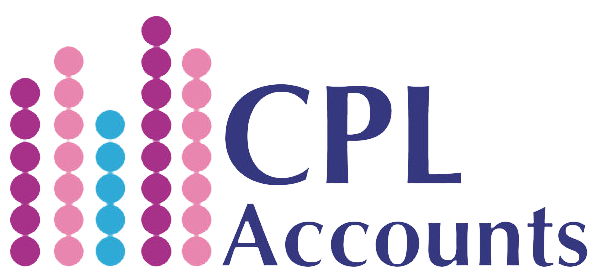Cash Flow 101: Bookkeeping Brilliance Unleashed!
CPL Accounts • September 9, 2025
Cash Flow 101: Bookkeeping Brilliance Unleashed!

Cash flow is often referred to as the lifeblood of a business. It determines whether a company can pay its bills, invest in growth and sustain operations. Effective bookkeeping plays a pivotal role in managing cash flow by providing the insights and organisation required to make informed financial decisions. In this blog, we’ll explore how proper bookkeeping can help you maintain a healthy cash flow and ensure the financial stability of your business.
Book a Free Consultation
Real-Time Financial Tracking
One of the primary benefits of bookkeeping is the ability to track your financial transactions in real time. By maintaining up-to-date records of income and expenses, you gain a clear view of it at any moment. This visibility allows you to identify trends, seasonal fluctuations and potential cash shortages before they become critical issues.
Accurate Forecasting
Effective bookkeeping provides the data necessary for cash flow forecasting. By analysing historical financial data, you can predict future cash inflows and outflows more accurately. This forecasting helps you prepare for upcoming expenses, plan for seasonal variations and make informed decisions about investments or cost-cutting measures.
Expense Management
Bookkeeping helps you categorise and track your expenses, making it easier to identify areas where you can cut costs. By regularly reviewing your financial statements, you can spot unnecessary expenditures and implement strategies to reduce them. Managing expenses effectively contributes to improved cash flow, allowing you to allocate funds to more critical areas of your business.
Timely Invoicing and Collections
A well-organised bookkeeping system allows you to manage invoicing and collections more effectively. By keeping track of outstanding invoices and payment due dates, you can ensure that you send reminders and follow up on overdue payments promptly. Timely invoicing helps accelerate cash inflows, improving your position and reducing the risk of cash shortages.
Monitoring Accounts Payable
Just as it’s essential to collect payments from customers promptly, managing your accounts payable is equally crucial. Bookkeeping enables you to keep track of your outstanding bills and payment deadlines. By scheduling payments strategically, you can optimise your cash flow, ensuring you have enough liquidity to meet obligations while taking advantage of any early payment discounts.
Identifying Cash Flow Issues Early
Regular bookkeeping allows you to identify potential issues before they escalate. By reviewing your statements and financial reports, you can spot trends that may signal trouble ahead, such as increasing expenses or decreasing sales. Early detection enables you to take proactive measures, such as adjusting budgets or securing additional financing, to address potential challenges.
Strategic Financial Planning
With accurate bookkeeping, you can conduct detailed financial analysis that informs your strategic planning. Understanding your cash flow patterns enables you to make decisions about investments, hiring and expansion. By aligning your financial goals with your cash flow capabilities, you can ensure sustainable growth for your business.
Effective bookkeeping is essential for managing cash flow, providing the insights and organisation needed to make informed financial decisions. By tracking your finances in real time, managing expenses and ensuring timely invoicing, you can maintain a healthy cash flow that supports your business’s growth and stability.
If you’re looking to improve your cash flow management through effective bookkeeping, contact us today! Our expert team is ready to help you set up a robust bookkeeping system that provides the insights you need to keep your business thriving. Let us help you achieve financial clarity and success!

The Construction Industry Scheme (CIS) sets out the rules for how payments and taxes to subcontractors for work in the construction industry must be handled. As a contractor, you must: register for CIS with HMRC. check that your subcontractors are registered with HMRC. pay subcontractors accordingly; Their Invoice value less CIS Tax. submit monthly CIS returns to HMRC. pay CIS to HMRC monthly (You are collector of the CIS for HMRC). As a Subcontractor, you must: register with HMRC; a simple online application as self-employed. if you are not registered, contractors have to deduct the higher 30% rate instead of the registered 20% rate off your invoices. Running a Limited Company under CIS You can offset your CIS deductions Taken/Suffered from payments received against the following: any PAYE payments due to HMRC your National Insurance contributions CIS deductions the company has made from its subcontractors HMRC will repay any deductions that the company is not able to offset against its PAYE liabilities. Offsetting your Monthly CIS liabilities to HMRC You can offset your CIS liabilities against your PAYE/NI payments each month. This will either reduce your CIS payments or eliminate them! CIS Record Keeping You must record all the amounts taxed. Sign up for CIS To sign up for the Construction Industry Scheme, please login into HMRC online service to register – https://online.hmrc.gov.uk/login HMRC have a dedicated helpline 0845 366 7899 if you get stuck. Reverse Charge VAT for Contractors Domestic Reverse Charge came in in Mar 2021 and applies to VAT-registered Contractors and VAT registered Intermediary Customers. This means you don’t need to charge VAT on to your Customer if they are not the End-user. Your Invoice will not show VAT but has to say “Reverse-Charge Supplies You can get more information about the Construction Industry Scheme at www.gov.uk/what-is-the-construction-industry-scheme

Bookkeeping Jargon can be daunting for many business owners. With a plethora of financial terminology, it’s easy to feel overwhelmed. However, understanding key bookkeeping Jargon is essential for managing your business finances effectively. We believe that knowledge is power and being familiar with these terms can empower you to make informed financial decisions. This guide’s aim is to cover some of the essential bookkeeping jargon every business owner should know. Account Receivable Accounts receivable refers to the money word to your business by customers for goods or services provided on credit. It’s crucial to keep track of these amounts, as they represent future cash inflows. Monitoring accounts receivable helps ensure that your business maintains healthy cash flow. Accounts Payable On the flip side, an account payable is the money your business owes to suppliers or vendors for purchases made on credit. Managing accounts payable effectively is vital for maintaining good relationships with suppliers and ensuring that your business can operate smoothly without cash flow decisions. Assets Assets are resources owned by your business that have economic value. They can be tangible, like equipment and inventory or intangible, like patents and trademarks. Understanding your assets is essential for assessing your business’s financial health and making strategic decisions. Balance Sheet A balance sheet is a financial statement that provides a snapshot of your business’s financial position at a specific point in time. It lists your assets, liabilities and equity allowing you to see what your business owns and owes. Regularly reviewing your balance sheet can help you understand your financial stability and make informed decisions. Cash Flow Cash flow refers to the movement of money in and out of your business. Positive cash flow indicates that your business is generating more money that it is spending, which is crucial for sustainability. Monitoring cash flow helps you anticipate financial challenges and plan for future expenses. Double-Entry Bookkeeping Double-entry bookkeeping is an accounting method that records each transaction in two accounts; a debit and a credit. This system helps ensure accuracy and provides a complete picture of your financial situation. Understanding this method can enhance your bookkeeping practice and reduce errors. General Ledger The general ledger is a comprehensive record of all financial transactions within your business. It serves as the foundation for your financial statements and provides detailed information about your accounts. Keeping an accurate general ledger is essential bookkeeping and financial reporting. Profit and Loss Statement Also known as an income statement, a profit and loss statement summarises your business’s revenues, costs and expenses over a specific period. THis statement helps you assess your business’s profitability and make informed decisions about budgeting and spending. Reconciliation Reconciliation is the process of comparing two sets of records to ensure they match. For example, reconciling your bank statements with your accounting records helps identify discrepancies and ensures accuracy in your financial decisions. Tax Liability Tax liability refers to the total amount of tax your business owes to the government. Understanding your tax liability is crucial for compliance and financial planning. Keeping accurate records can help you prepare for tax season and penalties. Familiarising yourself with these essential bookkeeping terms can significantly enhance your understanding of your business’s financial heath. At CPL accounts we are dedicated to helping business owners navigate the complexities of bookkeeping and accounting. If you need assistance or have any questions about financial management, don’t hesitate to reach out.

We know that running a small business is no small feat. From managing day-to-day operations to strategic planning, there’s an endless list of tasks that demand your attention. Amidst these challenges, keeping track of financial transactions and maintaining accurate books often fall by the wayside. Even though they are, debatably one of the most important parts of running a business. That’s where a bookkeeper comes in. If you hire a bookkeeper to work full time for you, it can truly be a game changer. But isn’t cheap. There are a variety of options available to you when it comes time to look for a bookkeeper. From freelance, to high quality outsourced bookkeeping services like CPL accounts. We always recommend looking into the options available to your business, and what you’re able to afford. For small to medium businesses, who don’t require daily bookkeeping work, we recommend looking at outsourcing your bookkeeping rather than hiring an internal bookkeeper. And we’ll delve into all the benefits of outsourcing your bookkeeping in this blog. Understanding the Role of a Bookkeeper A bookkeeper is a professional who records and organizes a company’s financial transactions. Meticulously recording all income and expenses, ensure bills are paid on time, invoices are sent promptly, and financial records are accurate and up-to-date. A bookkeeper can also assist with payroll, bank reconciliation, and preparing financial statements. An outsourced bookkeeper takes care of these tasks as and when you need them. At CPL Accounts we offer a variety of different services depending on the level of bookkeeping your business requires and what you can afford. Reasons Why a Small Business Should have a Bookkeeper Time and Efficiency: As a small business owner, your time is best spent on core business activities, not on managing books. When you hire a bookkeeper, they can take over the time-consuming task of record-keeping, freeing up your time to focus on growing your business. When it comes to outsourcing, bookkeepers are there when you need them, giving you a quick turnaround for tasks that require their services. Financial Accuracy: Mistakes in bookkeeping can lead to financial implications, including inaccurate tax filings and over or under-statement of income. A professional bookkeeper, whether hired internally or outsourced, with their expertise and attention to detail, can significantly reduce the risk of errors. Cash Flow Management: Effective cash flow management is crucial for the survival and growth of any business. A bookkeeper can help monitor cash flow, enabling you to identify trends, plan for the future, and make informed business decisions. Regulatory Compliance: Businesses are required to adhere to various financial regulations. These may include tax laws, employment regulations, and reporting requirements. When you hire or outsource a bookkeeper, they can help ensure your business is compliant, reducing the risk of financial penalties or legal issues. Financial Analysis and Insights: A bookkeeper doesn’t just record transactions; they can also provide valuable financial insights. Regular financial reports can help you understand your business’s financial health, identify opportunities for growth, and spot potential issues before they become serious problems. Peace of Mind: Knowing your financial records are in the hands of a professional can give you peace of mind. You can rest assured that bills are being paid, receivables are being tracked, and all transactions are being accurately recorded. Making the Decision While hiring a bookkeeper is an additional expense, the benefits they bring in terms of time savings, financial accuracy, and business insights often outweigh the cost. Using an outsourced service like CPL Accounts rather than hiring a full time bookkeeper as part of your team, not only gives you access to experienced professionals, but also allows you to save on monthly costs. Good bookkeeping is not just about compliance; it’s also a critical tool for business success. By providing a clear picture of your business’s financial health, a bookkeeper can help set your business on a path of sustainable growth and profitability.
